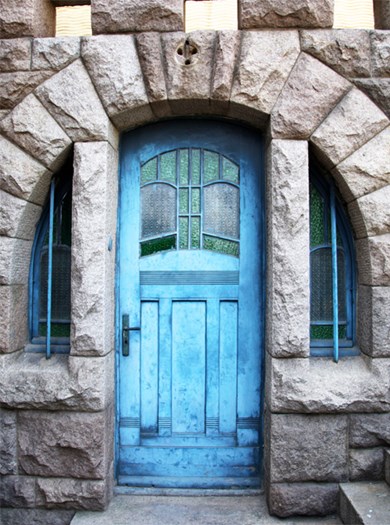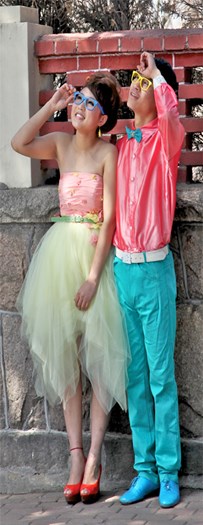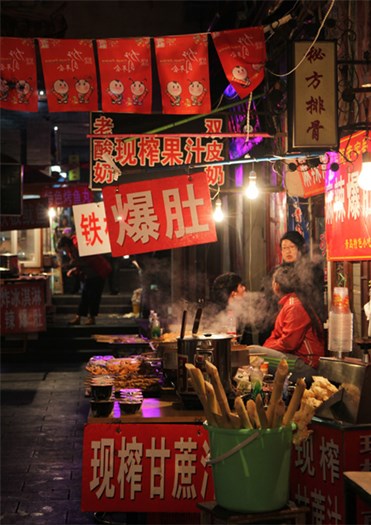QINGDAO, CHINA - The ground is unsteady. I can’t seem to keep my balance. I hold onto a railing tightly but can’t walk in a straight line. I can hear people laughing. I must look like a fool.
When a stranger bumps into me and starts talking a mixture of Chinese and English, the only word I can make out is “drunk.”
Is he saying I’m drunk? I’ve had one beer. But I do appear to be intoxicated. It’s because I’m in the “Drunken House” — one of the attractions at this city’s world-renowned brewery, Tsingtao, maker of one of the best beers anywhere.
The Drunken House simulates the feeling of having a few too many beers through a series of illusions, such as slanted walls and floors.
It’s all great fun and just one of the many things I like about China’s beer capital, which has a European feel thanks to the German and Brits who settled here and who taught the Chinese how to make the golden brew.
Tsingtao brewery, which opened in 1903 and is the country’s oldest, is also one of the biggest in the world and the beer produced here has become China’s No. 1 consumer export product.
The brewery’s success and history is celebrated in an entertaining museum that’s part of the factory tour, which includes a sampling of the product, of course.
The German-English inspired beer is not the only European influence in this vast city that is home to over 8 million people. The architecture in Qingdao is a unique fusion of European styles, mixed with traditional and modern Chinese construction. The red tiled roofs juxtaposed against the Chinese pagoda are a prime example of how the contrasts in architecture come together beautifully in Qingdao.
From a pagoda perched high on a hill in Xiao Yu Shan (Little Fish Hill Park) I get a birds’ eye view of the city and its unique mix of architecture. The three-storey, octagonal pagoda is classic in it’s Chinese design and stands out from the old European buildings, topped with red tile roofs, that surround it.
A majestic looking building catches my eye in the distance and I ask Maggie, our guide, about the intriguing yellow exterior.
“We are going there later, it is a beautiful mansion,” she says while pointing to the former German Governor’s residence, which is now known as the Qingdao Guest House.
The German mansion is adorned with ornamental details and painted bold colours — a unique example of German Imperial architecture in China.
“Please come inside,” Maggie encourages but I’m too busy taking photographs of the regal yellow building that is flanked with stone.
The mansion’s interior is an antique lover’s dream, with furniture and relics displaying the opulence of the past.
In the gift shop, I leaf through a couple of the history books and I am fascinated to discover that for 33 years — up to 1949 — this city was actually under control of Germany and Japan.
“Are you lost?” the pretty waitress wearing the formal Chinese costume asks as I re-enter the restaurant where Maggie takes us for lunch.
Once again, I’m feeling disoriented. The table where I was sitting with fellow journalists is no longer there.
“Don’t worry,” says the waitress, “your friends are over there.”
While I was gone, the revolving restaurant atop the Huiquan Dynasty Hotel moved my companions half way around the room.
“It (being disoriented) happens to everyone — the restaurant moves around more quickly than most people realize,” she says.
Both the food and panoramic view at this restaurant are equally good and a feast for the eyes.



Above: The modern and ancient worlds live very nicely together in this city.
After lunch, we head to the city’s yacht club, with a spectacular view of the water. Upon arrival, it’s instantly clear why Qingdao was chosen as the host city for the Olympic sailing competitions during the 2008 Beijing Summer Games. Being positioned at the tip of the Shandong Peninsula, which dips southward into the Yellow Sea, makes Qingdao the perfect location for the sailing competitions.
The city keeps the Olympic spirit alive at their impressive Olympic Sailing Museum and people here are still filled with pride when they talk about their Olympic experiences.
Despite the inescapable foreign influences, Chinese culture remains vibrant in Qingdao and the best place to experience the city’s Chinese roots is at Pichai Yuan, a beautiful area that is filled with ancient treasures.
Being surrounded by salty water, seafood abounds in Qingdao and I’m encouraged to try dishes featuring starfish, sea urchins and sea cucumber Beijing all Chinese delicacies.
From beer and great food to breathtaking views and foreign influences, Qingdao stands out from most other Chinese cities and easily intoxicates visitors Beijing even if they don’t drink beer.
About the Author
Driven by a passion for travel and adventure, she expresses her creativity through stories and photos. Jessica's work has appeared extensively in national newspapers and magazines and she is a regular contributor to TraveLife magazine. Her portfolio encompasses a diverse cross-section of topics, ranging from design, lifestyle, food, and travel to business and investing. She holds a Bachelor of Arts, Honours Degree from Queen's University in Communication Culture and Information Technology. She has also earned college certificates in the fields of Commercial Photography and Public Relations. Jessica has travelled to and written about destinations in Africa, Asia, South America, Europe, the United States, Canada and the Caribbean.